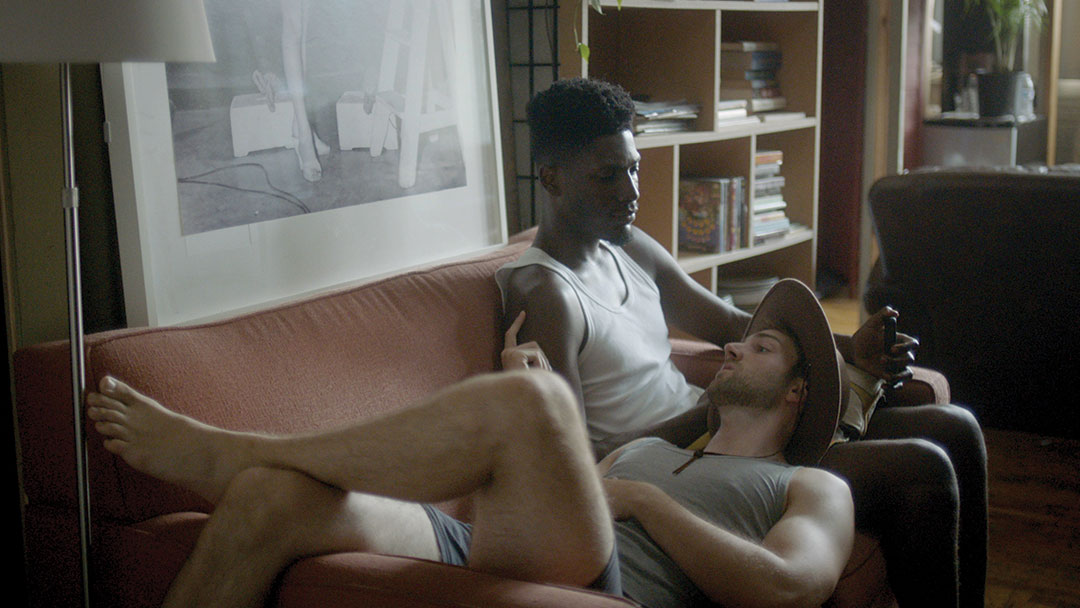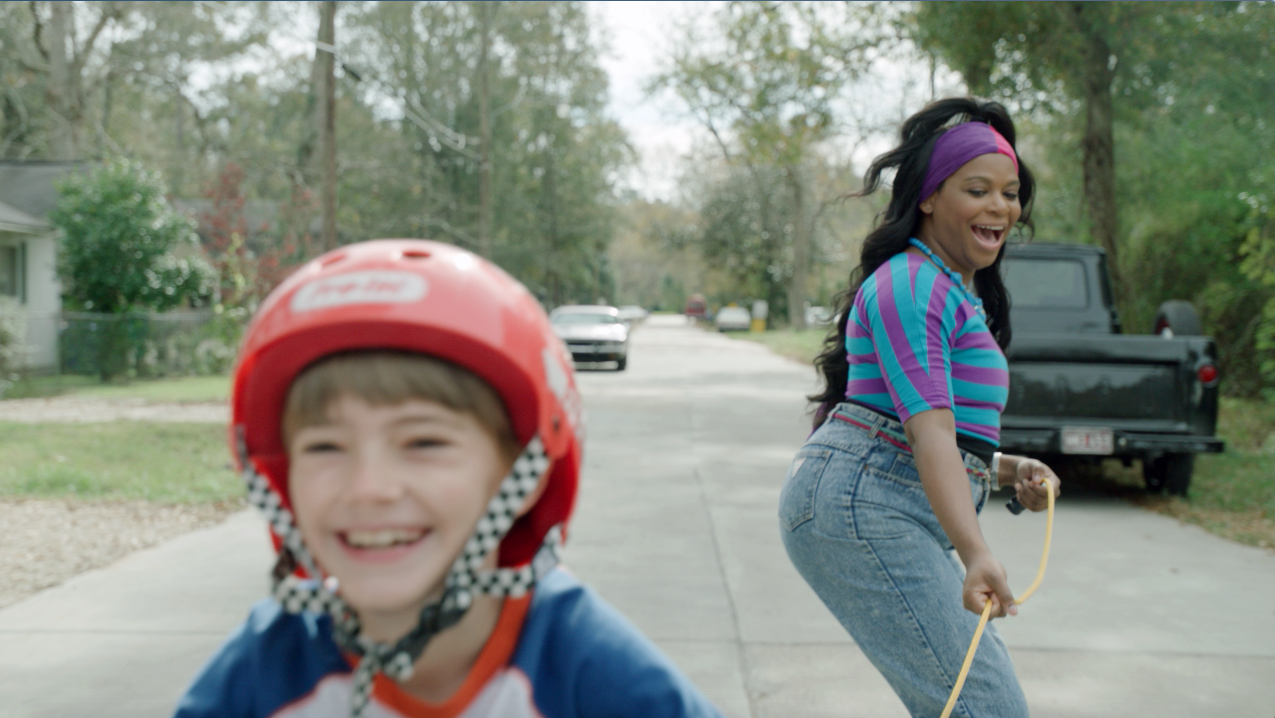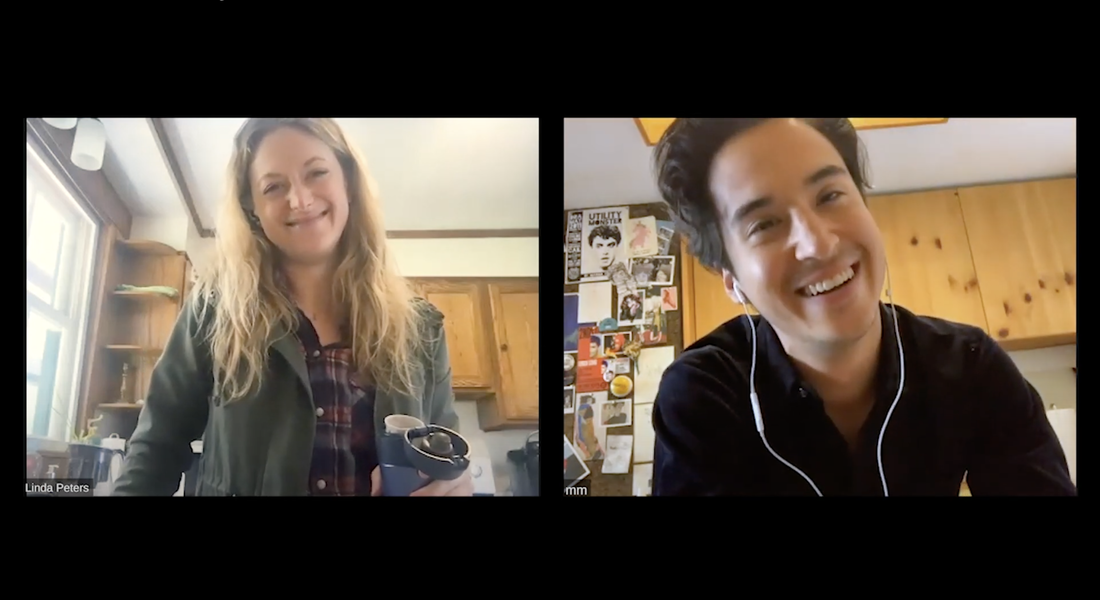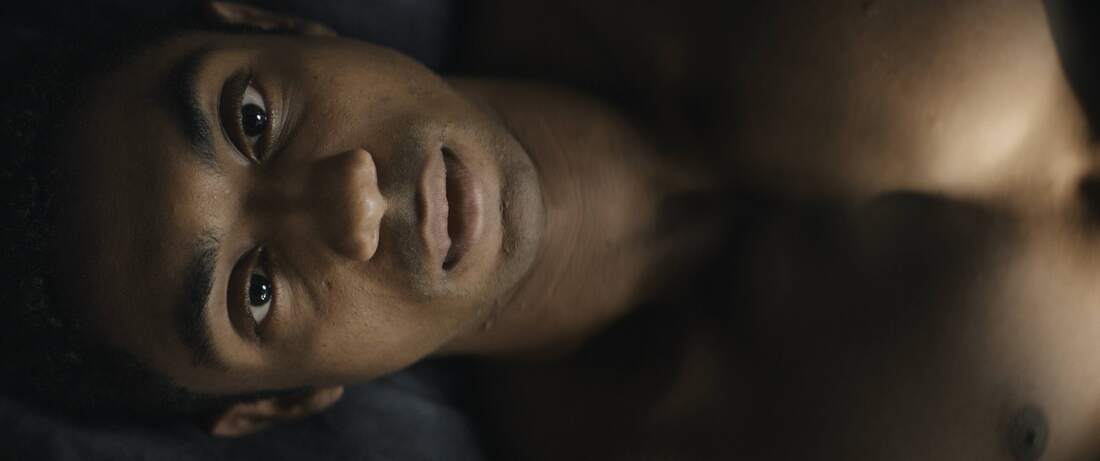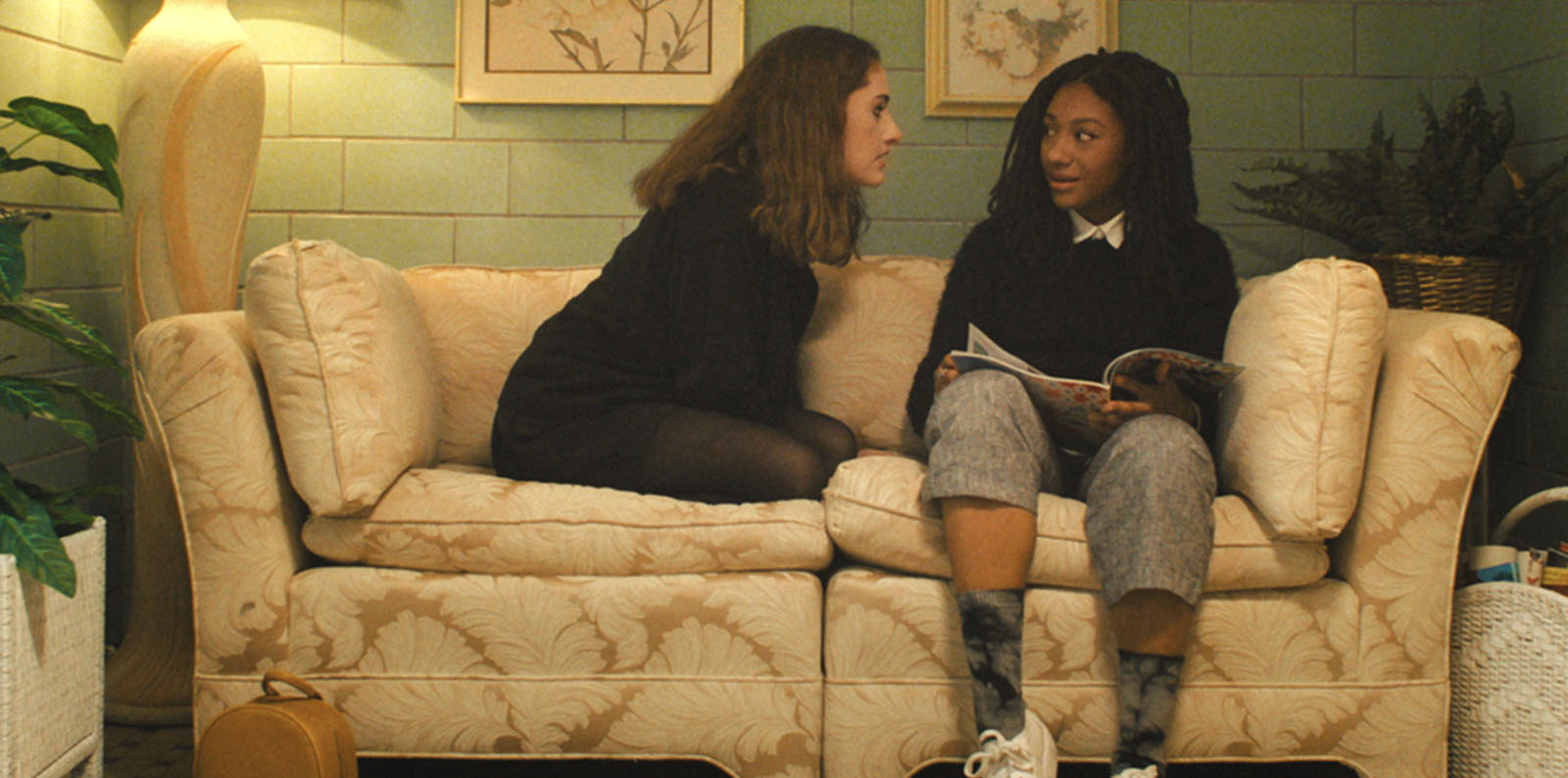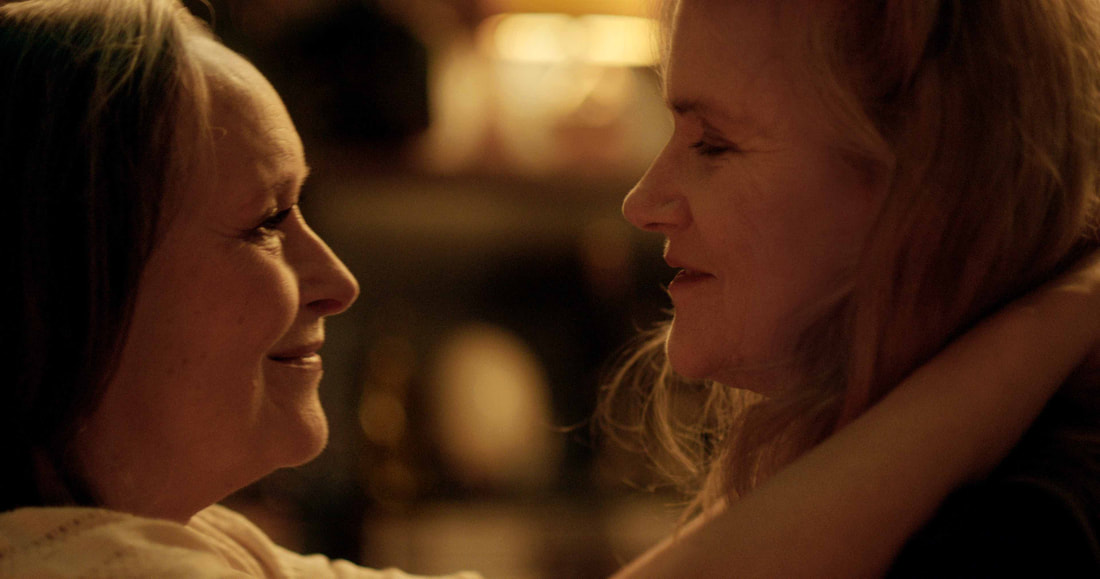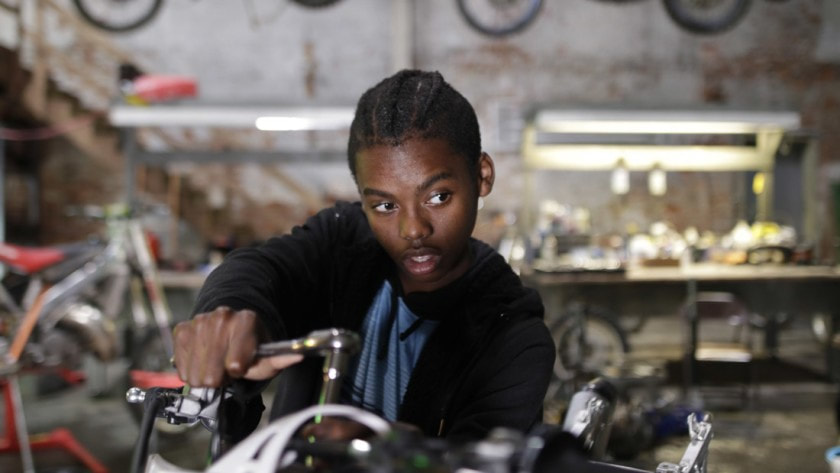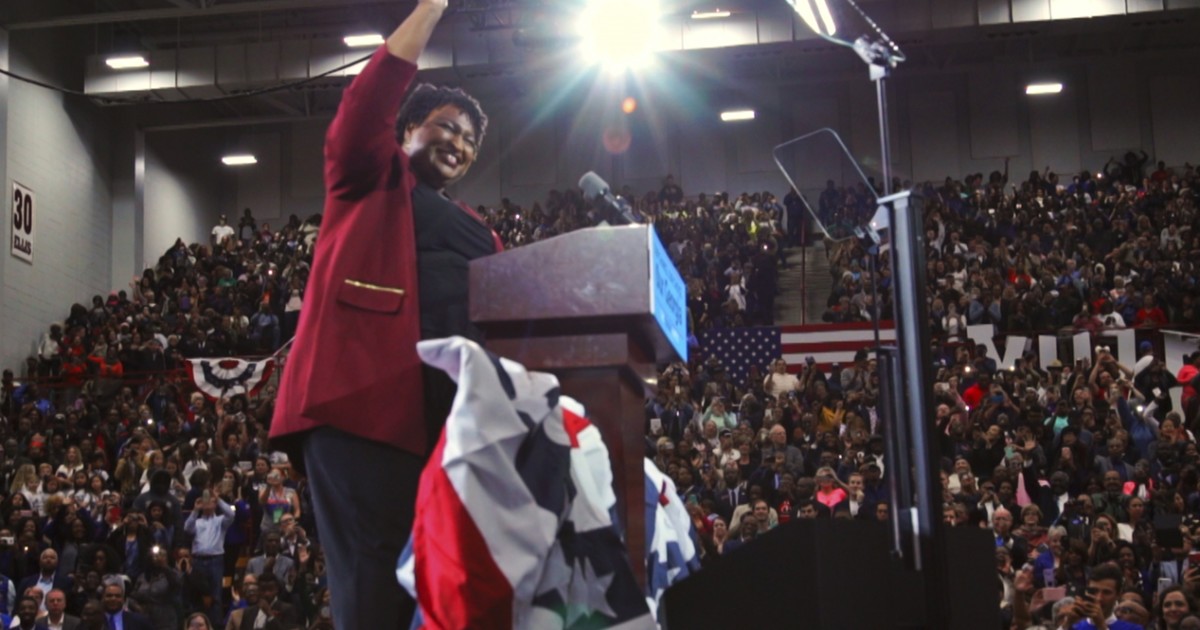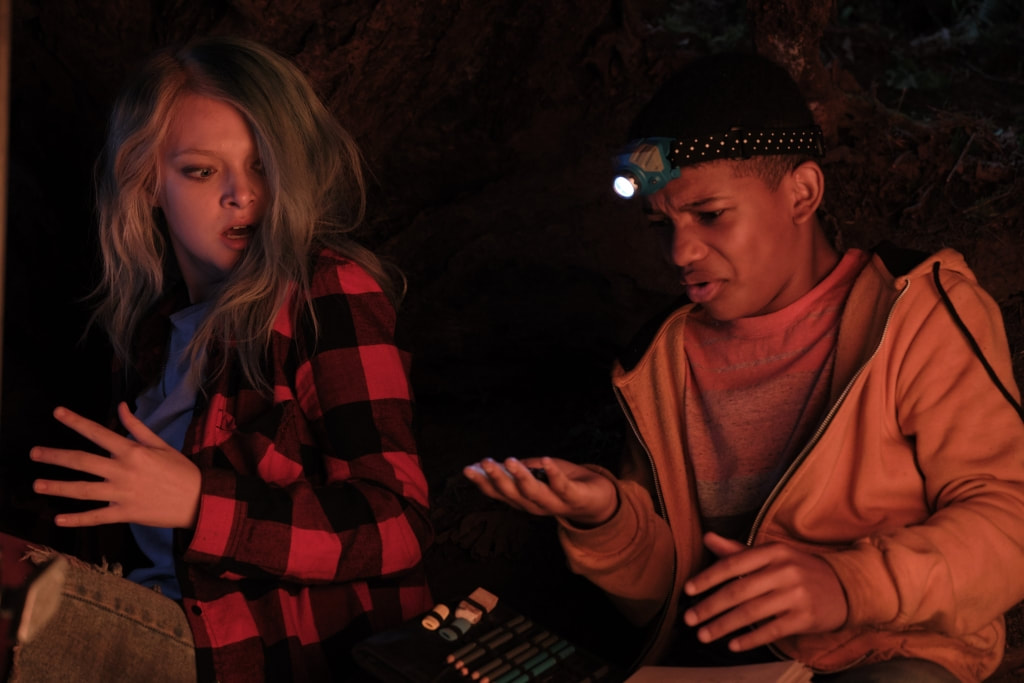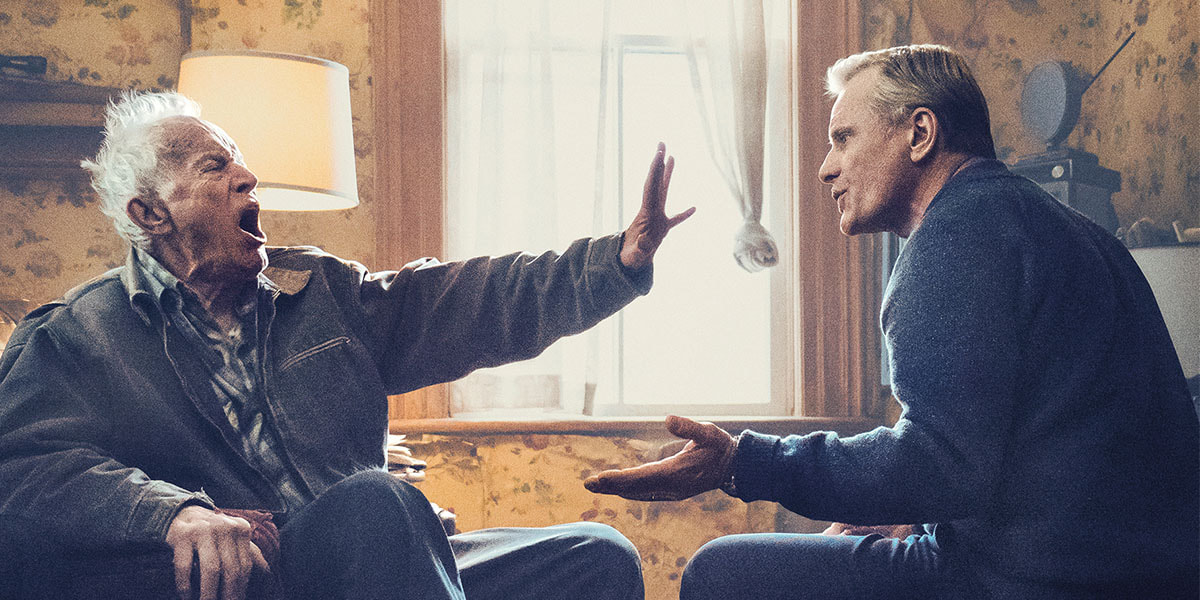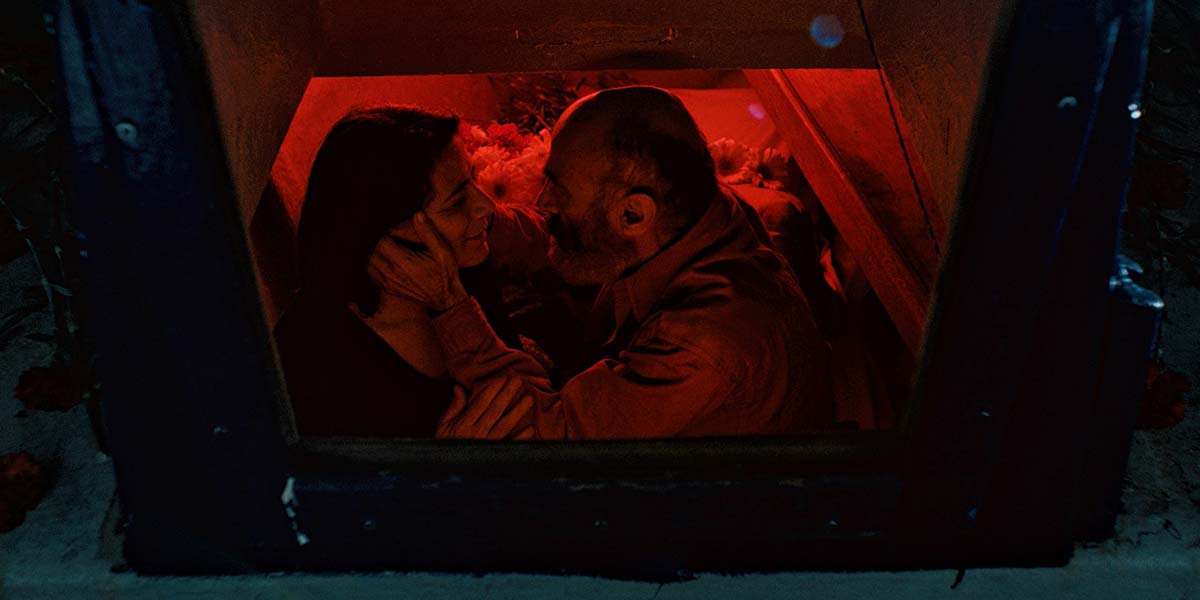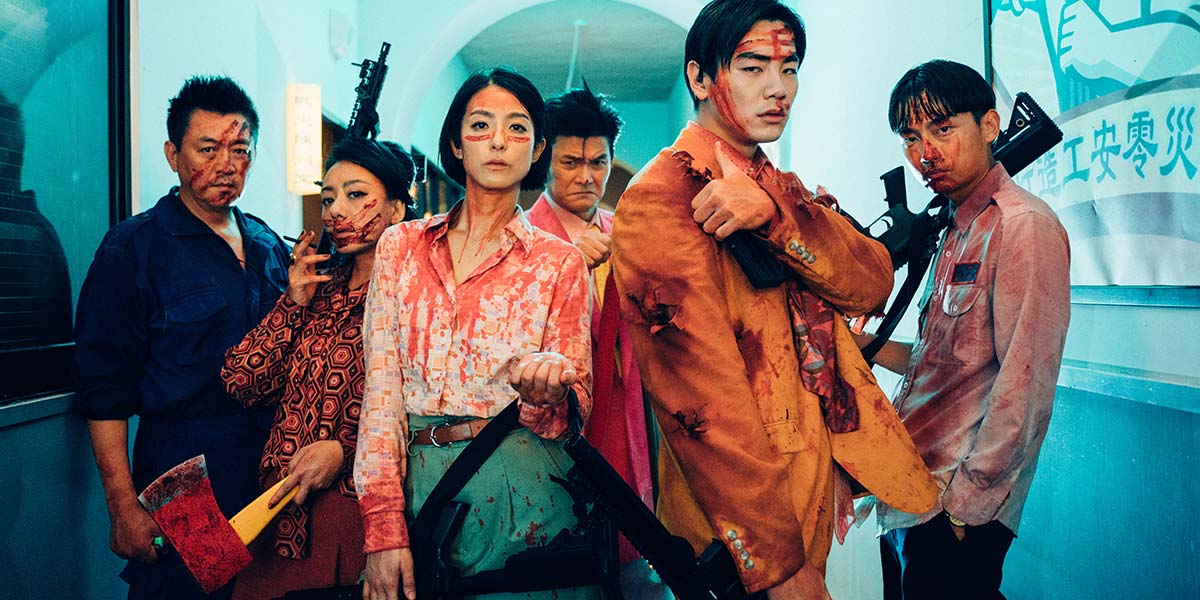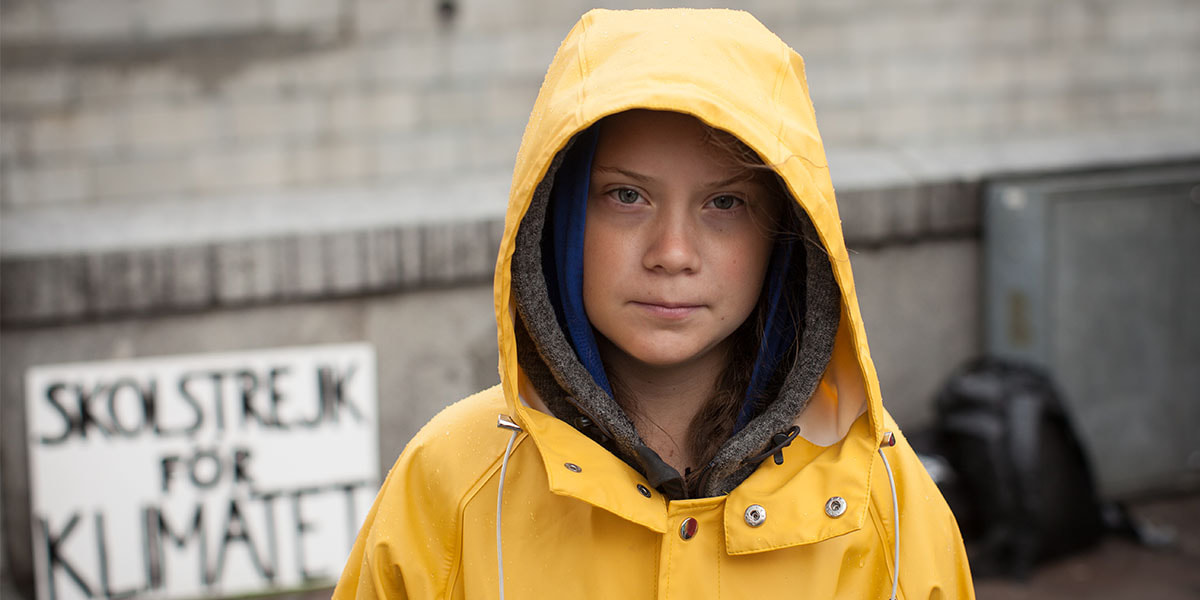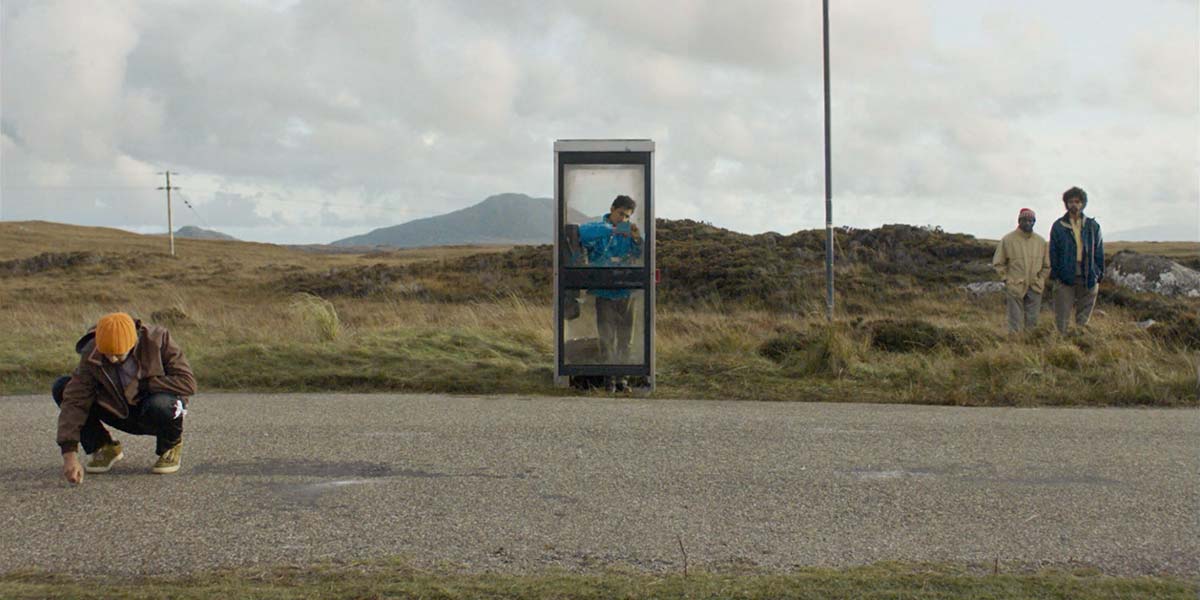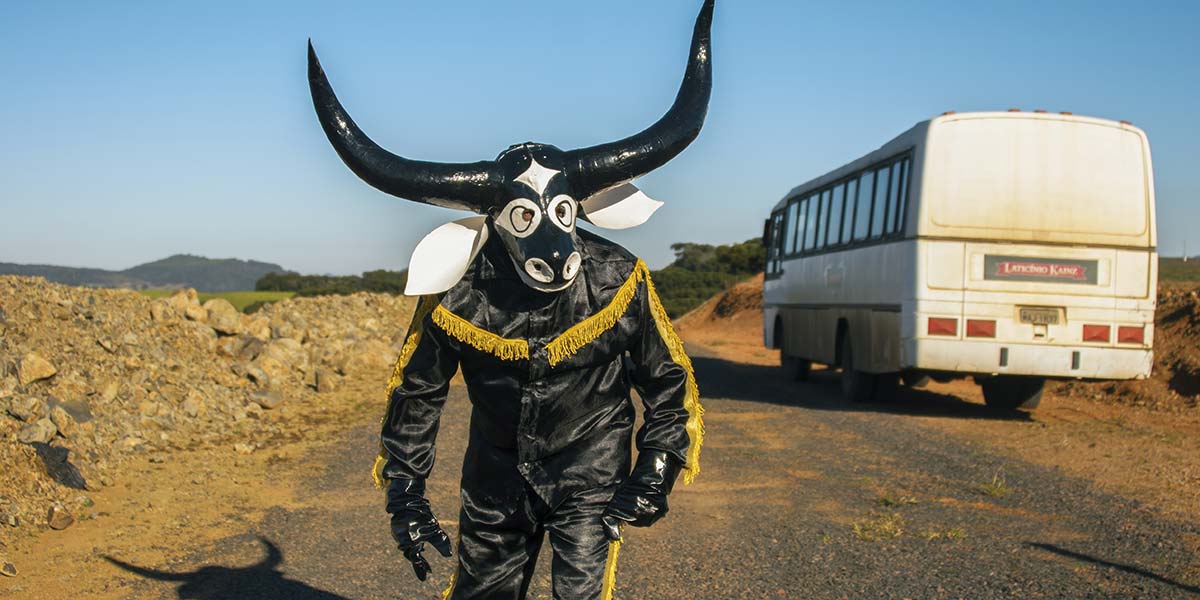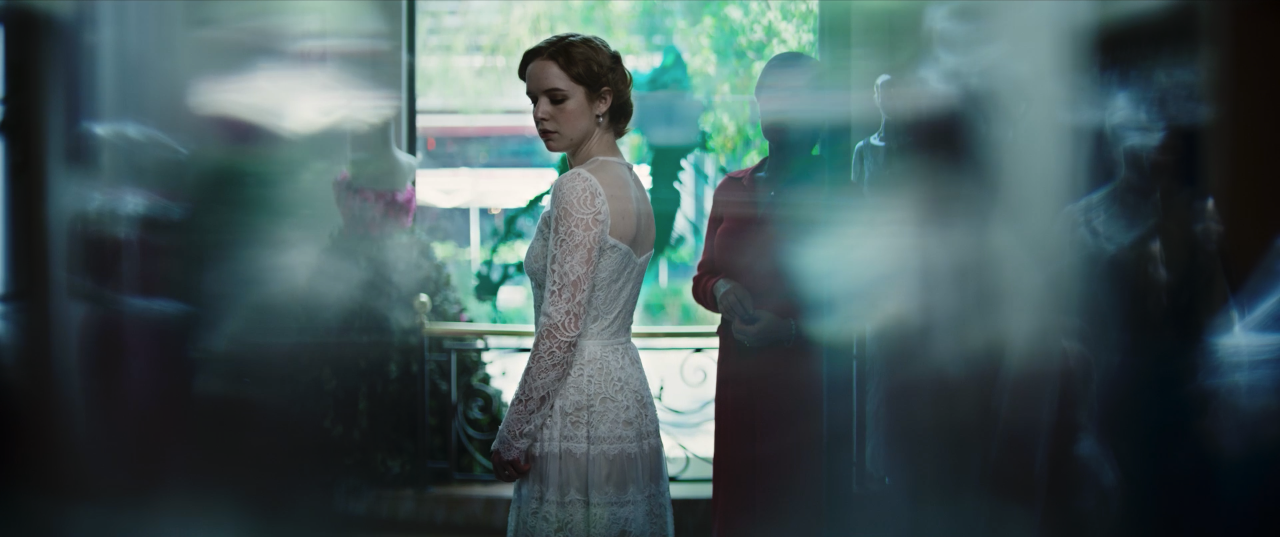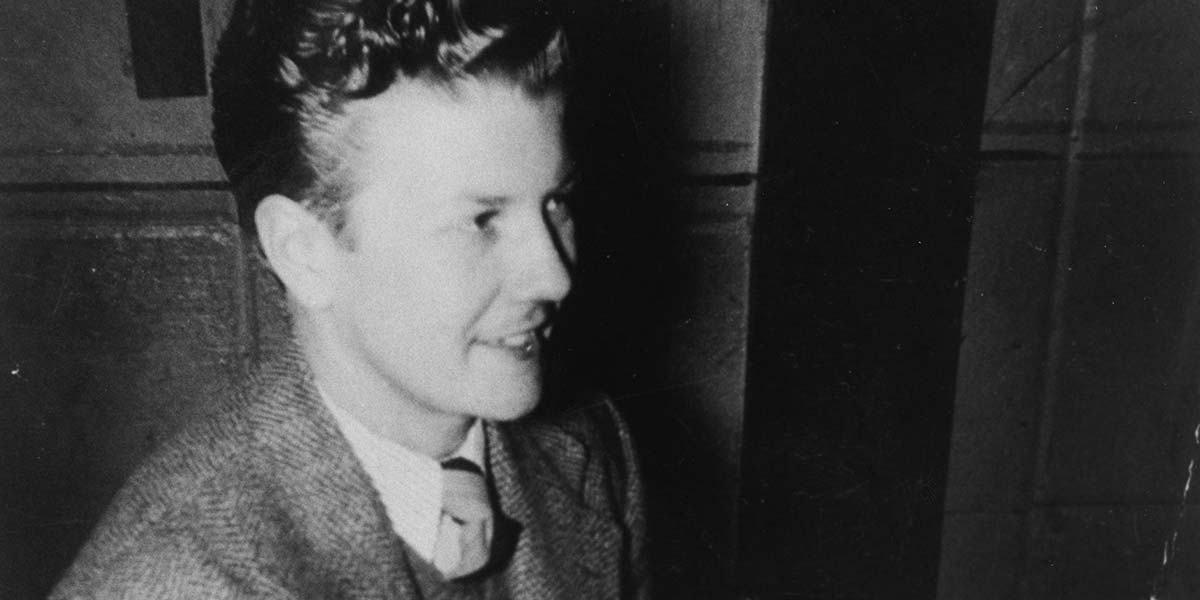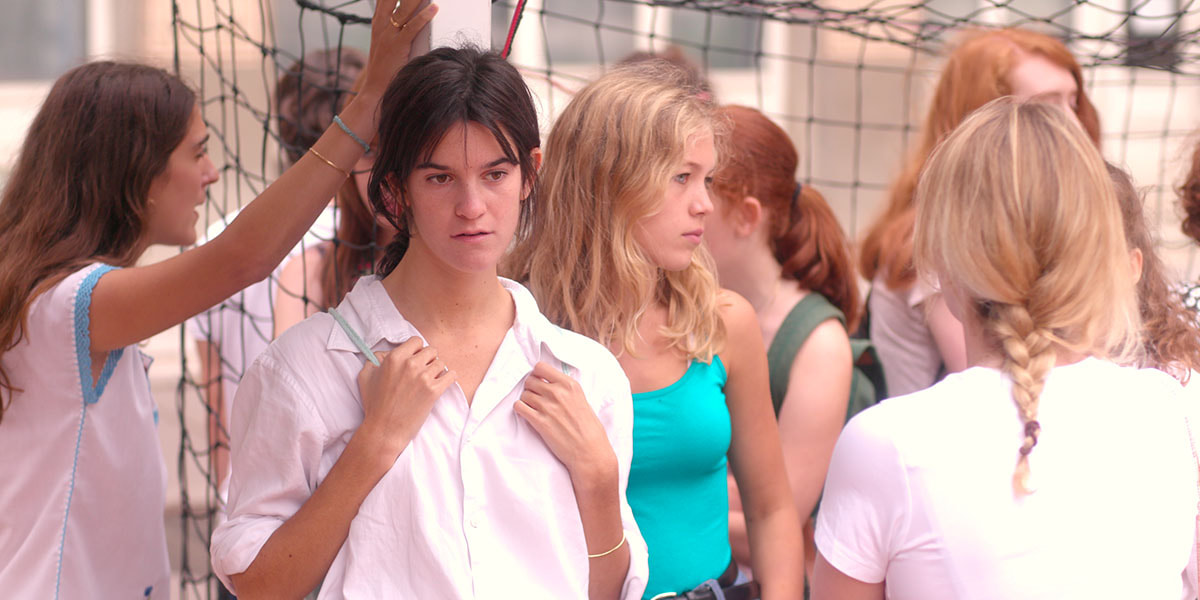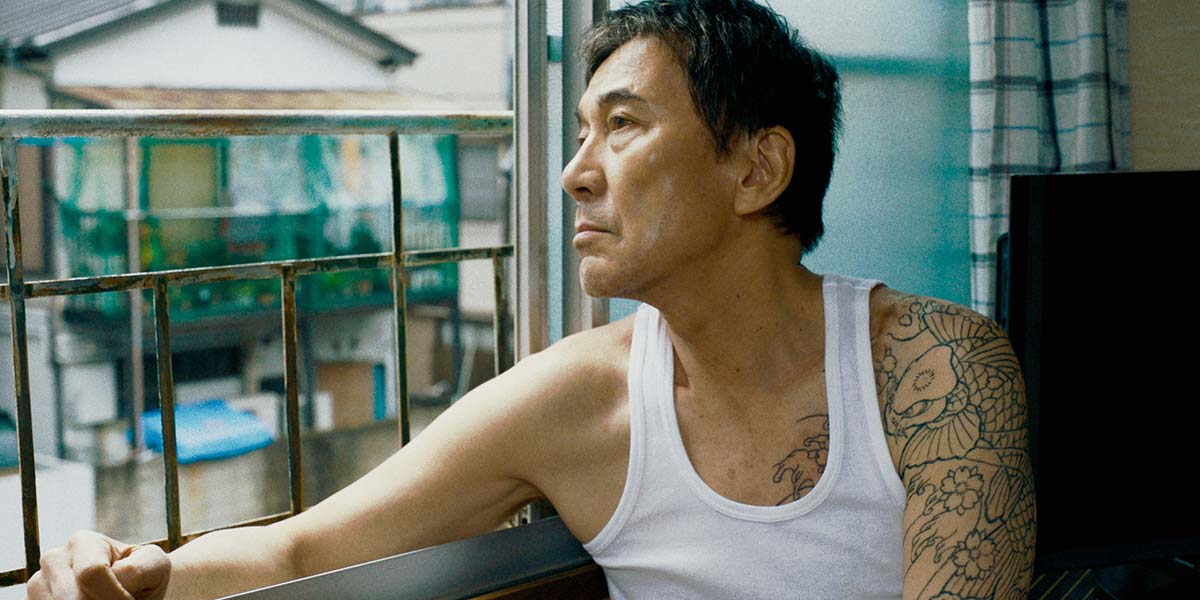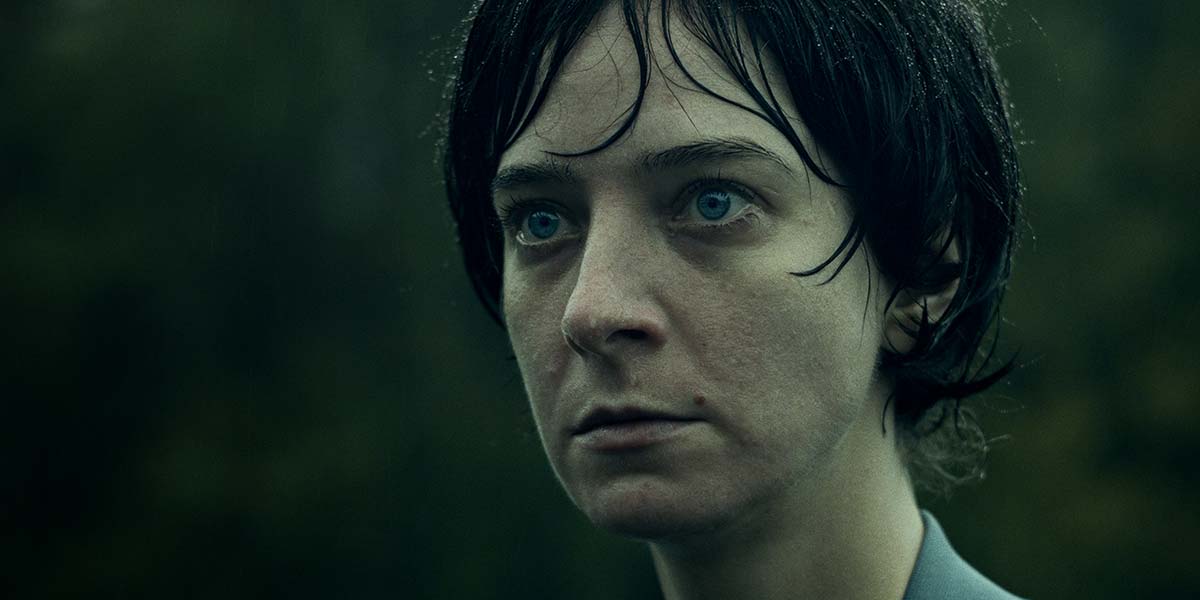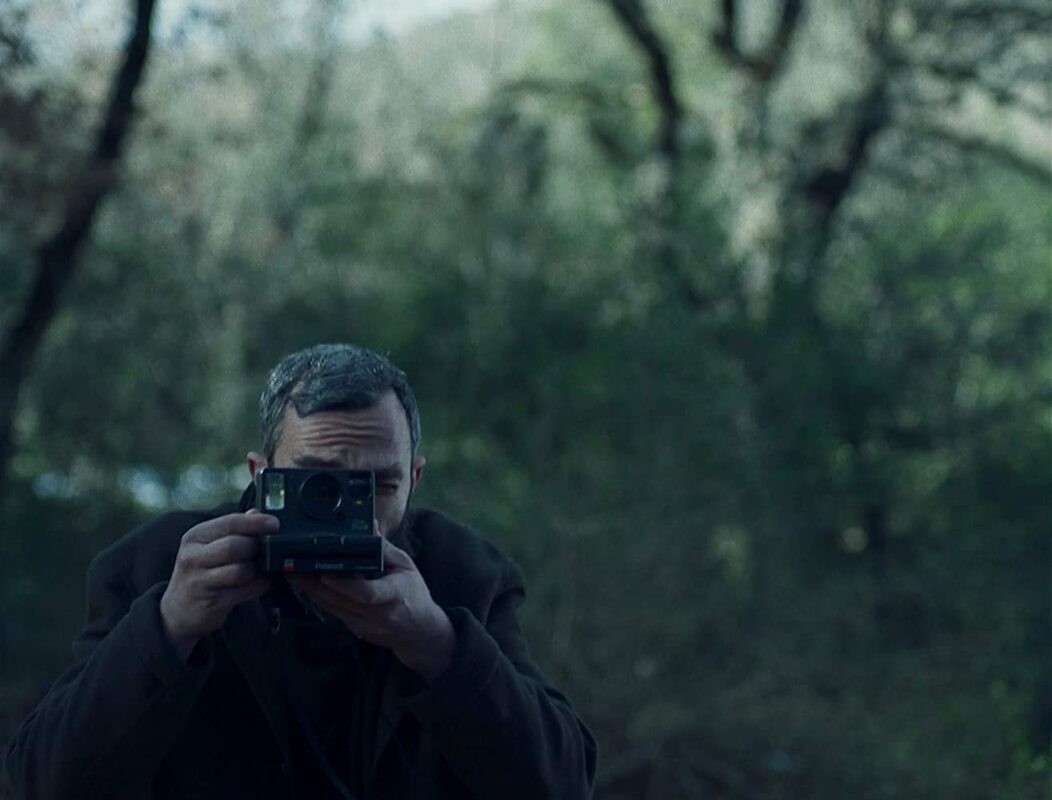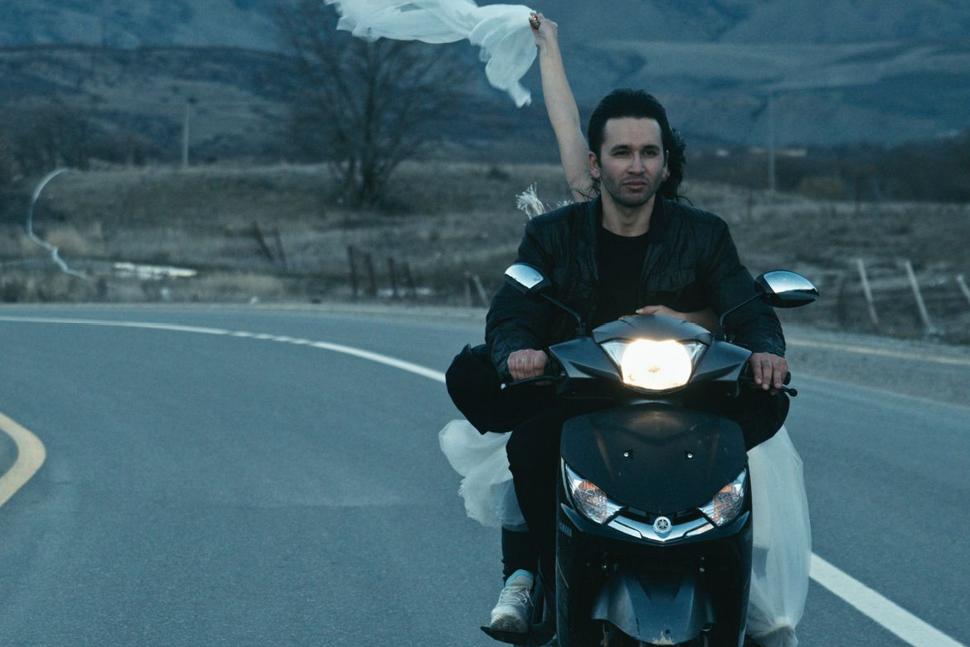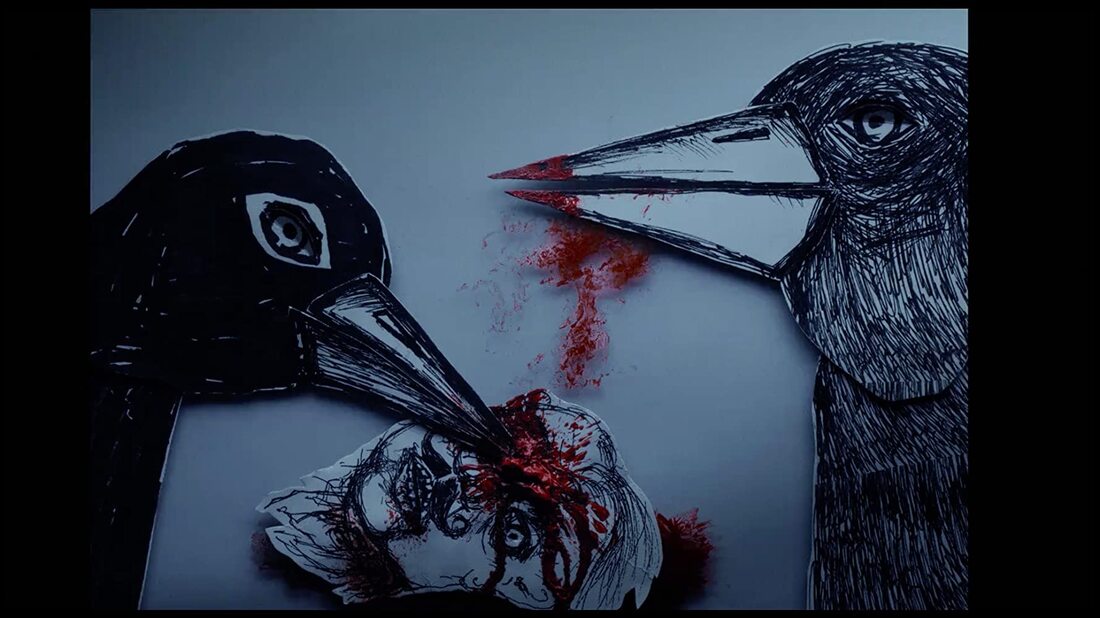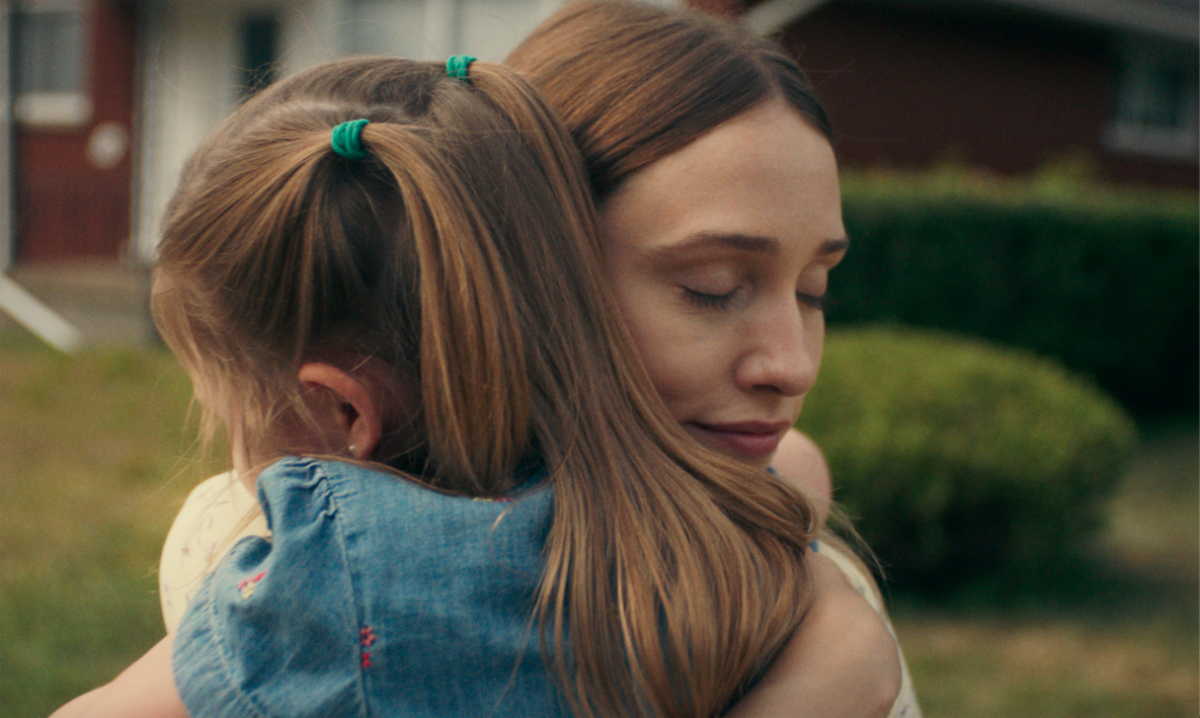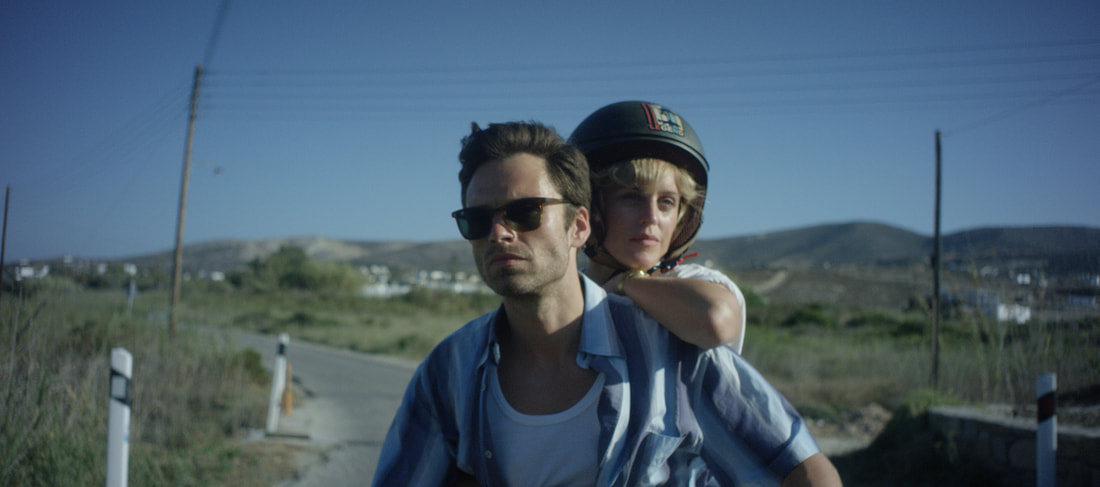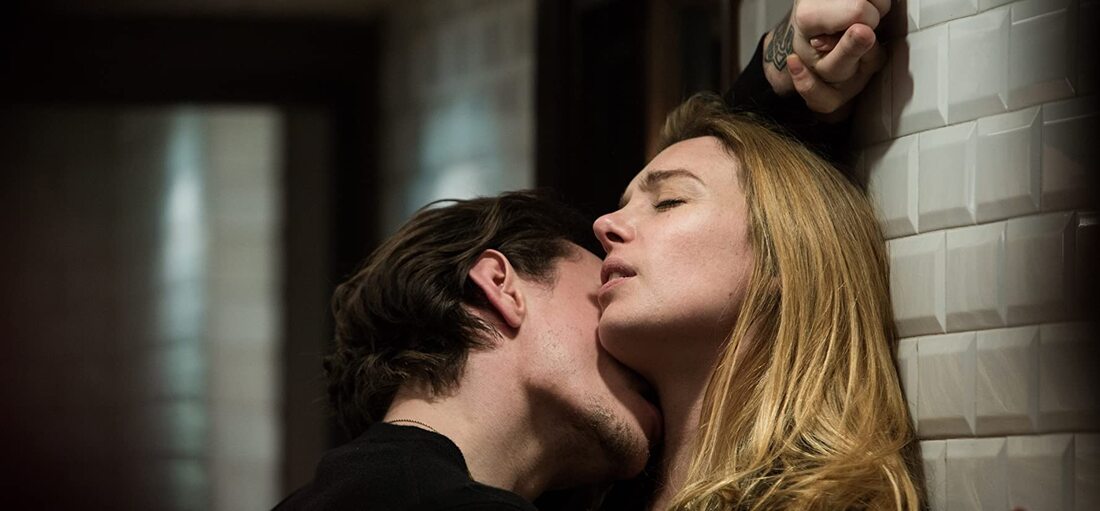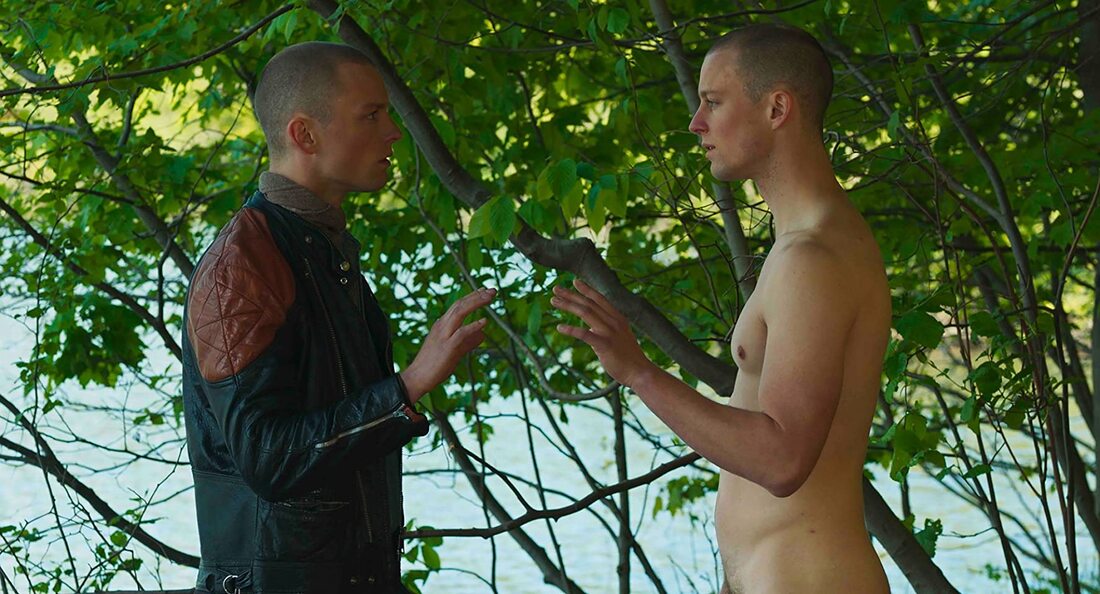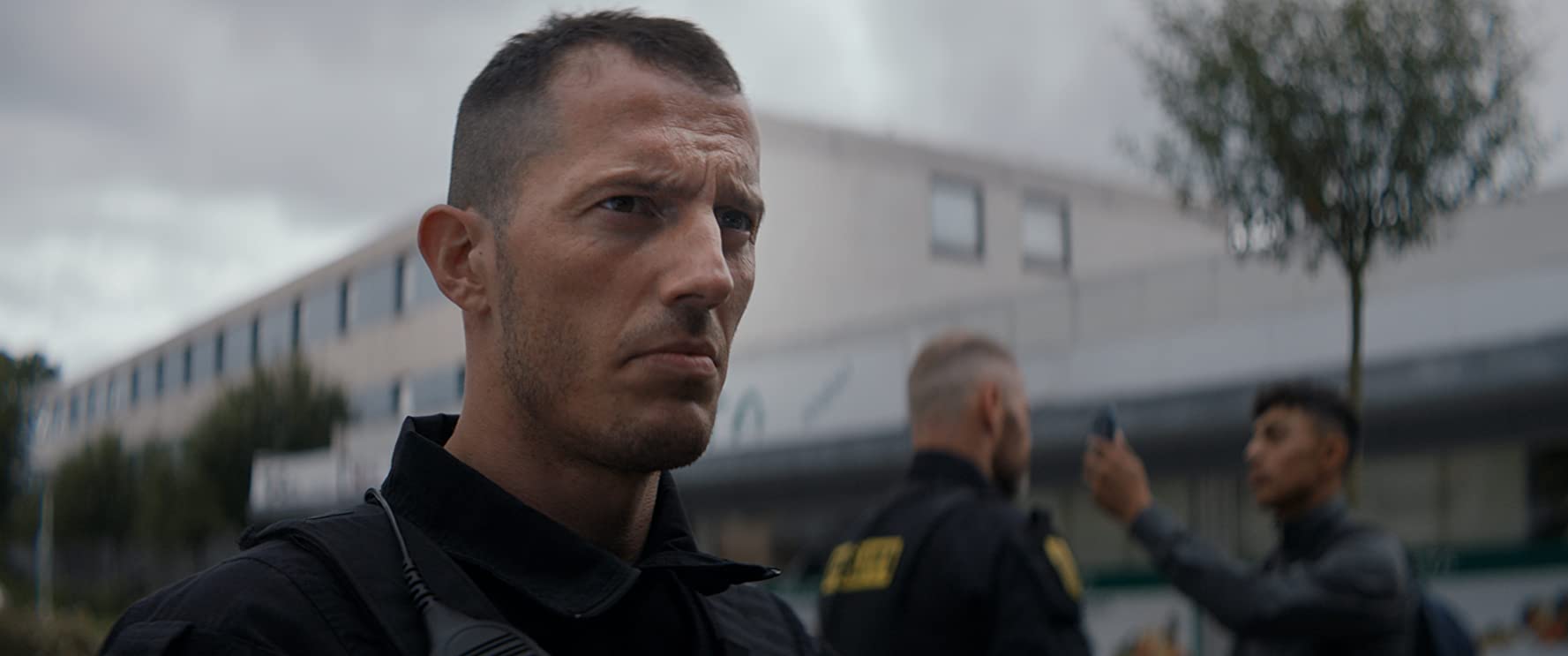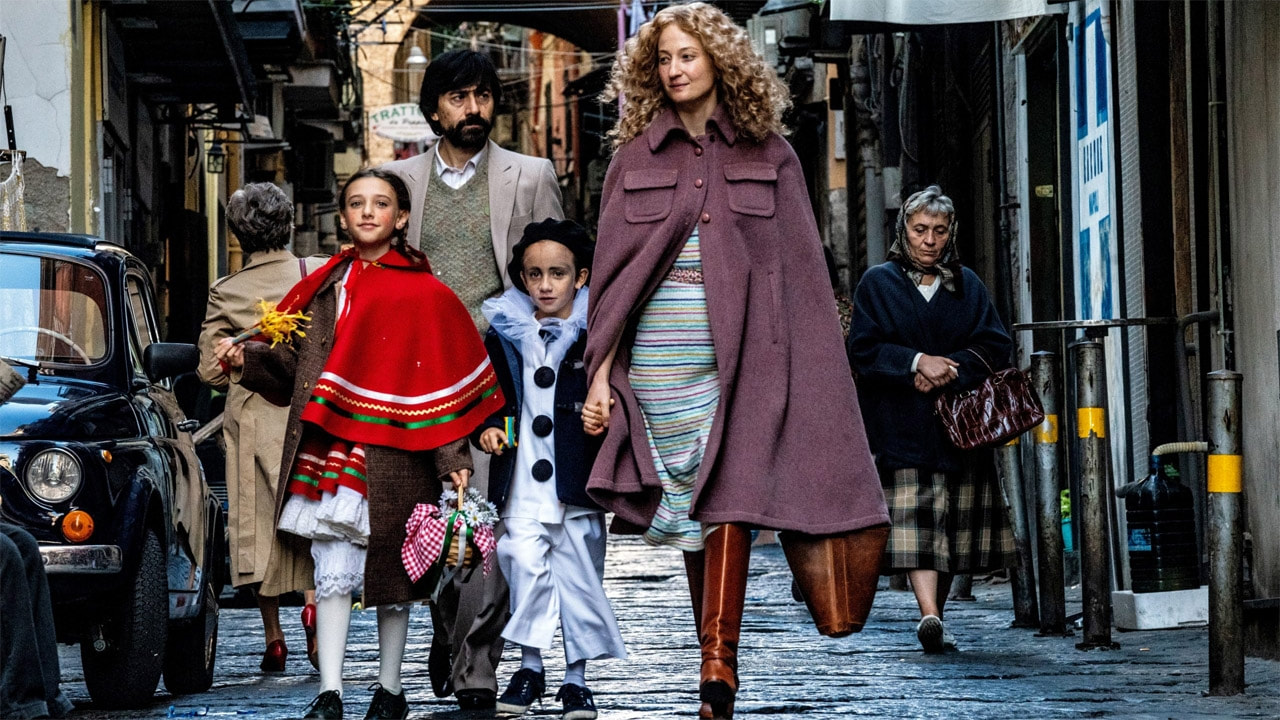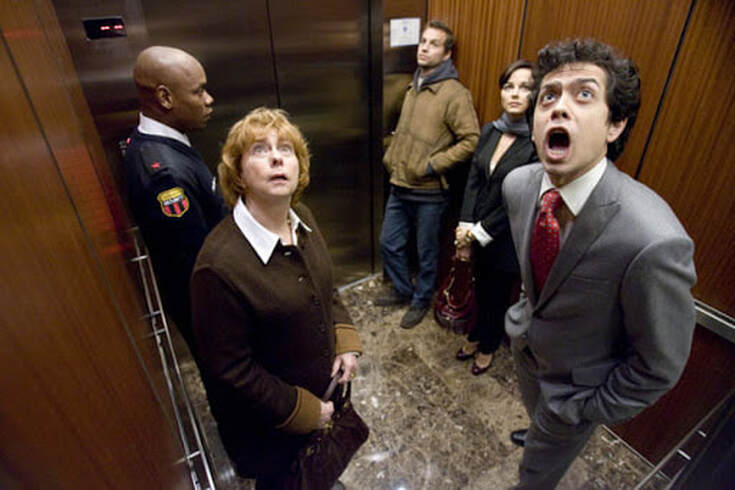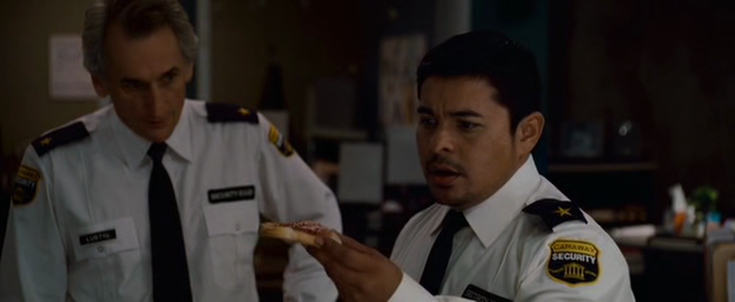|
By Sean Boelman
Based in New York City, NewFest is one of the leading LGBTQ film festivals. Due to current circumstances, the 32nd edition of the event was forced to go almost entirely virtual (with the exception of drive-in screenings of Ammonite and Uncle Frank), but they still presented some absolutely wonderful programming from diverse voices. We at disappointment media got the chance to check out some of the films playing at the festival, and here are some of our thoughts.
Cicada
The thing that works so well about Matthew Fifer and Kieran Mulcare’s Cicada is Fifer’s performance in the lead role. This story of two gay men struggling with romance in New York City is a pretty run-of-the-mill relationship drama, but the level of rawness and intensity that the script brings to these familiar ideas is pretty magnificent. Fifer’s chemistry with co-star Sheldon D. Brown (who also contributed to the story) lights up the screen, selling the love story very well. Ultimately, the film seems designed to be an acting showcase for the two leads, and in that regard, it succeeds completely.
Ellie and Abbie (and Ellie's Dead Aunt)
Offering an authentic and charming spin on familiar coming-of-age tropes, Monica Zanetti’s romantic comedy Ellie and Abbie (and Ellie’s Dead Aunt) is the type of quirky, feel-good crowd-pleaser that seems destined to earn itself a cult following. Following a shy teenage girl who is trying to gather up the courage to ask her crush to the school dance when she receives a visit from the ghost of her dead aunt offering guidance, the beats here are mostly predictable, but there’s plenty enough humor and emotion in Zanetti’s script for it to be both an entertaining and a heartwarming watch.
Gossamer Folds
The family comedy Gossamer Folds is one of those movies that is so wholesome and has such a good heart that one can’t help but find it cute despite its flaws. And this story about a young boy having his first encounter with the LGBTQ community has a solid amount of problems of its own, beginning with the way in which it presents trans issues from a predominantly cis perspective. Writer Bridget Flanery gets points for having mostly three-dimensional characters, but Lisa Donato’s filmmaking is a bit too sentimental for its own good. Great performances from Jackson Robert Scott and Alexandra Grey save the day, though.
Monsoon
Filmmaker Hong Khaou’s sophomore feature Monsoon may not have the most substantial of narratives, but it’s a restrained and gorgeous character study. Following a British-Vietnamese man who returns to his homeland for the first time in decades after the death of his parents, this is mostly a bunch of conversations and stray observations about grief and identity, but it’s a compelling watch nevertheless. In the lead role, Henry Golding is great, delivering a much more quiet yet still charismatic turn compared to those that burst him onto the scene. But the most valuable player is cinematographer Benjamin Kracun, whose picturesque photography of Vietnam gives the film much of its beauty.
Nora Highland
Filmed during the pandemic, Ryan Spahn’s Nora Highland is probably the most unique selection in this year’s lineup. Exploring the casting issues involving LGBTQ characters on Broadway (and by extension, in Hollywood), the story is fascinating and deals with some important issues. The structure is divided into three acts, and the middle one, which stars Marin Ireland and Michael Hsu Rosen, is certainly the best and most impactful, but the first and final thirds each have some funny and thoughtful moments. Some of the stylistic quirks that Spahn adds to compensate for the unique shooting style don’t always land, but given what he had to work with, the film is a relative success.
The Obituary of Tunde Johnson
Perhaps the single most important film that played as a part of this year’s NewFest lineup, Everybody Hates Chris co-creator Ali Leroi’s feature directorial debut The Obituary of Tunde Johnson is absolutely magnificent. Following an African-American teenager who gets stuck in a loop reliving his death at the hands of the police, this blend of teen angst drama with eerily timely commentary and the story of a kid trying to come into his sexual and racial identity is absolutely heartbreaking. Stanley Kalu’s script pulls no punches, making him a discovery waiting to happen.
Rūrangi
A feature film edit of a New Zealander television series, Max Currie’s Rūrangi is undeniably well-intentioned, but it gets a bit too caught up in melodrama to be as thought-provoking as it should be. Following a trans activist who reluctantly returns to his hometown, the intention of the story to take a serial form is clear because there are multiple supporting characters with fully-developed and self-contained subplots. It’s a compelling story, and Elz Carrad is an extremely likable lead, but Currie can’t escape an overwhelmingly soapy feeling. It seems to have been designed for a television format and likely would have worked better in that setting as well.
Sublet
A lot of travelogues tend to feel somewhat shallow and directionless, but that couldn’t be further from the case for Eytan Fox’s thoughtful drama Sublet. This story of a middle-aged travel writer visiting Tel Aviv who strikes up a relationship with his younger Israeli host may be straightforward and direct with its themes, but it still manages to have its full emotional impact. The two stars, John Benjamin Hickey and Niv Nissim, have great chemistry together, but also bring their own nuance to their respective roles. And of course, cinematography highlighting the beautiful streets of Tel Aviv is a highlight as expected.
Tahara
The lower-profile of the two anxiety-inducing dramedies starring Rachel Sennott in this year’s lineup (the other being Shiva Baby), Tahara is an enormously ambitious film reinforcing the need for new and authentic voices in cinema. Following a teen girl who suspects that she is developing feelings for her longtime best friend after an awkward romantic encounter at a funeral, there’s a lot going on in this story, and not everything pays off because of how many ideas writer Jess Zeidman tries to juggle in less than an hour and twenty minutes, but Olivia Peace’s confident and stylish directing makes the film memorable regardless.
Truman & Tennessee: An Intimate Conversation
Truman Capote and Tennessee Williams are two of the most prolific American writers of all time, and that makes them true LGBTQ icons. Exploring their literary careers, sexuality, and shared friendship, Lisa Immordino Vreeland’s documentary Truman & Tennessee: An Intimate Conversation is a wonderful ode to them as artists and creators. Using predominantly archive materials and a surprisingly good voiceover narration from Jim Parsons and Zachary Quinto as Capote and Williams, respectively, Vreeland is able to capture the poeticism that made both writers’ work so groundbreaking while still providing a meaningful biography at the same time.
Two of Us
There has been a recent uptick in films lately depicting late-life LGBTQ romances, and it’s frankly pretty adorable. Fillipo Meneghetti may not reinvent the wheel with Two of Us, but for what it is, the film is satisfyingly charming and lovely. Admittedly, this story of two retirees sharing a secret love isn’t as funny nor as moving as one would hope, though its hour-and-a-half runtime still breezes by. Aided by wonderfully humanistic performances from Martine Chevallier and Barbara Sukowa, Meneghetti delivers a romance that serves as a perfect reminder of how love conquers all and isn’t restricted by the boundaries of age.
White Lie
Yonah Lewis and Calvin Thomas’s thriller White Lie is one of the more challenging films that was in this year’s NewFest lineup, not because it deals with particularly weighty themes, but because it deals in moral ambiguity. Following a popular college student whose money-making and sympathy-gaining ruse begins to fall apart, it’s undeniable that the character here isn’t particularly likable, but there is still something oddly compelling about her story. A slow burn that builds its tension from the audience being in on the secret rather than trying to figure it out, this is a bit too layered to be mainstream, but is riveting nevertheless.
The 2020 NewFest Film Festival ran virtually from October 16-27.
0 Comments
By Dan Skip Allen Here are a handful of the films I saw at the Urbanworld 2020 Film Festival, which gives a voice to directors who haven't been in the spotlight before. They have all been telling very interesting and important stories in all different genres and styles. Some of them can be found right now on HBO Max and Amazon Prime. The rest will be available soon. Charm City KingsBased on a documentary, Charm City Kings depicts the lives of three young men who want to be somebody in life. They don't want to just be working stiffs in a downtrodden section of Baltimore, Maryland. Mouse (Jahi Di'Allo Winston), Lamont (Donielle T. Hansley Jr.), and Sweartagawd (Kezii Curtis) are childhood friends. Like most kids their age and creed, these guys have a hard time adjusting. They only really enjoy themselves when there riding their bikes through the streets of the neighborhoods. Mouse wants more, though. He wants to join the Midnight Clique, a dirt bike crew that roams the Baltimore streets. The boys see the fast money that comes with riding with the Midnight Clique, so the lines between the straight and narrow are blurred. All In: The Fight for DemocracyOver the decades, this country has had its fair share of voter fraud and even downright intimidation at the polls, mostly in the southern states but sometimes out West. Voter suppression is an old trick by people intending to fraud a particular county, district, or state. Fine print put into laws that have been passed over the years is a very frequent trick to cause voter fraud. Amendments 14, 15, 16, and 19 were very hard to get put in the constitution. All voter laws. The country suppressed different groups for many years. Lisa Cortez and Liz Garbus decided that they were going to focus on one particular person to focus their energy and vision on: Stacy Abrams, who ran for Governor in 2018. The film explores how voter suppression affected that election and how government officials running for office shouldn't be in charge of said election. This led her to make a concession speech mainly focused on voter suppression. This was the start for her becoming an activist against voter suppression not just in Georgia, but around the country. The Water ManActors becoming directors isn't anything new to the film industry. Over the years actors have delved into the realm of directing. Some with great success, Clint Eastwood, Kevin Costner, Mel Gibson, and Robert Redford, and others not so well. With The Water Man, David Oyelowo takes his turn in the director's chair. It is a relative success, but not overwhelmingly so. Gunner (Lonnie Chavis) is a young man dealing with a sick mother (Rosario Dawson) and a father (David Oyelowo) trying to keep his house and family together despite his wife's illness. Lonnie hears about a mythic character named The Water Man that has found a way to escape death. He sets out on an adventure to find out about The Water Man. During his adventure, he meets a young girl named Jo (Amiah Miller) who helps him along the way. The Donut KingThe Donut King, Ted Ngoy, grew up in Cambodia as a kid and as a young man, the Khmer Rouge took over his country and forced all the people out of the cities and into internment camps. Ted and his family were able to escape to America where they were housed in different internment camps ran by the military. Cambodians were able to leave the camps if they could get a family to sponsor them. Ted and his family got sponsored by a church, its minister, and his family. This was able to help Ted and his family make a life for themselves in America The Urbanworld Film Festival which ran September 23-27.
One of the writers from disappointment media worked on a film playing as part of the Dances with Films Festival, but they were not involved with the writing of this review.
By Sean Boelman
This year’s Toronto International Film Festival featured a reduced lineup of just fifty films, but even so, it would have been impossible for anyone to maintain their sanity while watching and reviewing every single one. Still, between the Official Selection and the Industry Selects sidebar, which added even more to the slate, disappointment media was able to catch a total of fifty-six feature films! Below are some of the films in the Official Selection that we didn’t get the chance to do a full review for, but we wanted to highlight anyway.
Bandar Band
Manijeh Hekmat’s road movie Bandar Band was one of the more alluring international offerings of this year’s Official Selection, but it didn’t live up to that potential. Following a band who travels through the flooded roads to Tehran, the film struggles to find a balance between meditative and joyous. Had the film been able to narrow itself down to one of its two purposes — an ode to music or a hard-hitting film about political issues — it would have been far more compelling. As is, it’s just a bunch of inconsistent scenes strewn together with a loose narrative.
Beans
The second runner-up in this year’s Audience Award voting, Tracey Deer’s coming-of-age drama Beans isn’t the average uplifting crowd-pleaser. Sure, the film does hit a lot of familiar beats, but they are presented with such an authentic voice that the end result doesn’t feel overly conventional. Exploring the Indigenous experience in a way that is empathetic and accessible to general audiences without pulling a lot of the punches that the genre is known to shy away from, it’s an entertaining and thoughtful film. And Kiawentiio is a star in the making with her phenomenal lead performance.
The Best is Yet to Come
The journalism drama The Best is Yet to Come is sure to leave viewers nostalgic for the era in which print journalism actually mattered to the public. And while print still very much matters as a medium, the story of this film doesn’t. The audience will undeniably care far more about the journalist’s experience than the issue which he is investigating. This may not be an inherently bad thing, but it also doesn’t sustain a nearly two-hour runtime. It simply lacks the scope of the more riveting entries in the genre, causing it to be mostly forgettable.
Falling
At every festival, there seems to be at least one film that gets in based on its star power alone, and this year, it’s Viggo Mortensen’s directorial debut Falling. Even though this story of a gay man trying to teach his elderly homophobic father some empathy is undeniably well-intentioned, it’s so misguided in its execution that it feels like a ticking time bomb that just barely manages to not explode. And if listening to an old man shouting homophobic rhetoric isn’t off-putting enough, the film features one of the year’s most truly bizarre sequences in which a young boy becomes enamored with a duck he shot.
Gaza mon amour
The Nasser Brothers’ romantic drama Gaza mon amour is a nice little movie and a welcome relief from the noticeably somber tone of much of the Official Selection. That said, this film about a man trying to court the woman with whom he is secretly in love is the very definition of slight. There are definitely some great things about it, like an excellent performance from Salim Dau, but other parts feel extremely underwhelming. Perhaps the biggest disappointment of the film is that the extremely talented Hiam Abbass, who plays the love interest, isn’t used to her fullest abilities.
Get the Hell Out
The Midnight Madness section of the Toronto International Film Festival is well-known to bring out some of the weirdest and most messed up movies of the festival circuit, and the Taiwanese zombie flick Get the Hell Out fits one of those two descriptions. Unfortunately, despite a really interesting premise, the commentary is underbaked and the visual style is inconsistent at best. A few bursts of satisfyingly gory violence and the occasionally witty one-liner don’t make up for the film’s lack of substance. With a more experienced director at the helm, this could have been much more entertaining than it is.
I Am Greta
Greta Thunberg has done some exceptional things in her life already despite being as young as she is. And while the cause for which she fights is undeniably a good one, and her accomplishments speak for themselves, she doesn’t yet have enough of a command of her persona to carry a documentary. It also doesn’t help that Nathan Grossman’s documentary is painfully conventional, causing it to be little more than a dull and straightforward biography. Those who are a “fan” of Thunberg’s work will be interested in this, but most others will find themselves a bit bored by its lack of depth.
Inconvenient Indian
One of the more ambitious and unconventional documentary offerings of this year’s festival, Michelle Latimer’s Inconvenient Indian brings author Thomas King’s book to the screen. This deconstruction of the colonization of Native Americans is absolutely fascinating. Making use of abstract imagery complemented by commentary from King, this is a very profound film. Admittedly, there is quite a bit going on here in a short ninety minutes, so the film feels a bit busy as a result. Nevertheless, Latimer’s passion for and connection with the source material is evident, and this allows her to craft a film that is completely captivating from start to finish.
Limbo
Ben Sharrock’s dark comedy Limbo gets off to a running start with a quirky introduction that shows the film’s potential to be a commentary on the very important issue of immigration. That said, after this initial intrigue wears off, the film turns into something much more conventional. Following a young immigrant alone in a foreign country waiting on the status of his immigration paperwork, the film struggles to find that balance between the satirical and the somber and meditative. Still, thanks to some excellent character work, it manages to be mostly compelling, even if it falls short in a few other departments.
Memory House
A Brazilian thriller with a darkly comedic edge, João Paulo Miranda Maria’s film Memory House would make a great double-bill with the indie favorite Bacurau. Following a factory worker who comes across a house that reminds him of his cultural origins, the film’s unique pacing will prevent it from connecting with most general audiences. Regardless, the observations that the filmmaker offers about cultural identity are quite insightful, and it is quite fascinating as such. The true highlight of the film, though, are its haunting visuals which create a nightmarish world rich in Latin American history and culture.
New Order
What is sure to be the most divisive film to come out of this year’s lineup, Michael Franco’s New Order is an absolute mess, but in the best way possible. Taking place in a city experiencing unrest that turns into full-on class warfare, the film is disturbing and brutal, but to powerful effect. Anyone who is Latino can tell you that Latin American history is covered with blood, and Franco does an excellent job of showing how these cultures are not as pretty as they may seem. There are a few issues, but for the most part, it’s powerful stuff.
No Ordinary Man
Although No Ordinary Man is at face value a biography of a trans masculine icon, it is also so much more. In their exploration of the life of Jazz musician Billy Tipton, filmmakers Aisling Chin-Yee and Chase Joynt explore not just Tipton’s life, but the way in which society tends to remember LGBTQ+ individuals and their experiences. Although there are some moments that utilize traditional documentary techniques, like archive footage and talking heads, it is the other, more innovative approaches to this story that will make it stand out. As the title would suggest, this is no ordinary biography.
Shiva Baby
Adapted from her own short, Emma Seligman’s Shiva Baby is a wonderful and brisk little comedy. Taking place nearly in real time, the film follows a young woman who runs into her sugar daddy while attending a funeral with her family. This is one of those comedies that really relies on secondhand embarrassment to milk an uncomfortable laughter out of the audience, and boy does Seligman succeed at that. It’s a truly hilarious exploration of familial bonds, among other things, and features some great performances to boot from Rachel Sennott, Molly Gordon, and Fred Melamed.
Spring Blossom
Young filmmaker Suzanne Lindon’s debut Spring Blossom is mostly notable because she wrote it as a teenager, and for a first film, it’s quite good. It’s definitely a very slight film, more impressive as a statement of the potential that Lindon has than a demonstration of it in action, but it’s a pretty enjoyable romance/coming-of-age film. Lindon’s best work in the film is arguably not as the writer or director, though — it’s in her leading role as the actress. It will definitely be exciting to get to see her do some more work with someone else at the helm.
Summer of 85
François Ozon has become known in recent years for making films that push the envelope, and while Summer of 85 may be a bit more safe, it’s still a tremendous work. A summer love movie with a dark twist, Ozon appears to be using this familiar story in unfamiliar ways, recapturing some of the stereotypes and cliches of LGBTQ+ cinema. Excellent performances from Félix Lefebvre and Benjamin Voisin ground the film, but it is Hichame Alaouie’s cinematography that is the real MVP. It’s an entertaining and breezy film that is a much more substantial alternative to the typical teen romance.
True Mothers
Naomi Kawase’s True Mothers has a really interesting concept, but it quickly devolves into little more than an upscale melodrama. Great cinematography and excellent performances can’t save a script that starts strong but goes all-in on the histrionics after the first act is over. Telling the story of a woman who is contacted by her adopted child’s birth mother, the convoluted narrative structure results in this film being about thirty minutes too long. Kawase shows a lot of talent behind the camera, but unfortunately, this is a film that easily could have benefitted from a substantial re-write.
Under the Open Sky
Miwa Nishikawa’s drama Under the Open Sky feels very long despite only clocking in at just under two hours. This story about a former yakuza trying to re-integrate himself into society simply isn’t as interesting as it should have been. There are definitely some things going for the film, like a phenomenal performance from Koji Yakusho and some solid cinematography by Norimichi Kasamatsu, but it feels like too much of the same old stuff we’ve seen countless times before. A few good moments aside, this film is fine but forgettable, which is a shame given the amount of talent involved.
Underplayed
Stacey Lee’s music documentary Underplayed deals with a tremendously important issue: gender inequality. However, in depicting the success of these great female DJs in the face of the adversity and opposition they have faced, Lee fails to do anything but shallowly inspire. Had she focused specifically on two or three of these artists, she would have been able to go into more depth on their experiences and how they are indicative of the industry as a whole. This general survey is still nice, and it obviously offers the opportunity to listen to some great beats, but otherwise, it doesn’t live up to its potential.
Violation
Dusty Mancinelli and Madeleine Sims-Fewer have made some truly harrowing shorts, so their feature debut Violation had a very high bar to meet. Unfortunately, despite some interesting ideas and a few disturbing moments, the film largely falls flat. This definitely isn’t a standard rape-revenge thriller, but it’s a character drama without much interesting character work. Mancinelli and Sims-Fewer try to leave too much unspoken and as a result fail to convey much of anything. It’s an eighty-minute movie stretched into over an hour-and-forty-five, and apart from one anxiety-inducing scene, it will test the viewer's patience.
The 2020 Toronto International Film Festival ran September 10-19.
By Sean Boelman
Because of the reduced number of films that the festival was able to screen due to the unique challenges faced for this year’s edition, the Toronto International Film Festival debuted a new Industry Selects sidebar. These films, still receiving the honor of being recognized by the festival outside of the Official Selection, screened for press and industry and the festival. The following are some of those films.
Apples
The feature debut of Greek writer-director Christos Nikou, who worked as the second assistant director on Yorgos Lanthimos’s Dogtooth, Apples is an unusual film that feels destined to find success on the art house circuit. Telling the story of a middle-aged man who falls victim to a pandemic that causes the sudden onset of amnesia, it may lack the dryly satirical edge that makes Lanthimos’s films so beloved, but it makes up for it in its existential musings on memory and identity. And lead actor Aris Servetalis gives a great performance, elevating the film from above average to legitimately memorable.
In Between Dying
Hilal Baydarov’s In Between Dying is a wandering movie in both a literal and a metaphorical sense. Following a young man searching for meaning in life, it definitely feels like there is a lot to dissect here, but the audience is never really given a reason as to why they should. Lacking either the narrative strength or the character development to justify its occasionally meditative rambling. It’s an absolutely gorgeous film to look at thanks to some beautiful scenery and great cinematography by Elshan Abbasov, but it works better as pleasant background noise than a compelling cinematic experience.
Kill It and Leave This Town
As an avant garde animated film, Mariusz Wilczynski’s fascinating Kill It and Leave This Town shows the tremendous potential that the medium has beyond the constraints of traditional storytelling. A surreal and often trippy voyage through the memories of the protagonist, it’s a very bizarre film that is likely to be a bit too much for most tastes. And while the animation style of the film isn’t what one would usually call attractive, as it is quite harsh and rudimentary in nature, it offers some uniquely nightmarish images. It very well may test some viewers’ patience, but it is absolutely worth the resolve.
Like a House on Fire
The relationship drama Like a House on Fire throws a very unique twist on a familiar story. About a young mother trying to reconnect with her estranged husband and their daughter, Jesse Noah Klein’s film feels intensely personal and hits much harder than expected. Of course, the film owes a lot to the powerful performances given by its two leads, Sarah Sutherland and Jared Abrahamson, but there is just a lot of empathy in Klein’s script. This is one of those films that is understandably very difficult to watch, but is rewarding nevertheless as a challenging, emotional experience.
Monday
Argyris Papadimitropoulos’s romance Monday obviously wants to be something more profound than it is, but it works just fine as a breezy summer romance. A snapshot of a relationship between two American expats living in Greece, the film is at its best when it lets its characters just have fun and struggles a bit when it tries to do something more substantial, almost crossing the line into melodrama. The chemistry between the two leads, Sebastian Stan and Denise Gough, is probably the single most important factor in selling this film’s emotion, but slick cinematography by Hristos Karamanis and a good score by Alexis Grapsas seal the deal.
My Best Part
The comedy-drama My Best Part, co-written, directed by, and starring Nicolas Maury, is probably one of the biggest disappointments to come out of this year’s market — not because it’s the worst, but because it showed the most potential. There are plenty of glimmers of greatness in this film about an actor who returns to his childhood home after his breaking point, but too often, the film comes across as annoying and out-of-touch. Despite a committed performance from Maury, the character is whiny and unlikable, and it’s a significant hurdle that the film is never able to overcome.
Passion Simple
Based on a bestselling book from the nineties, Danielle Arbid’s Passion Simple appears designed to have cashed in on the demand for mainstream erotica, but came a couple years too late. Tracking a relationship between a mother and a Russian diplomat, the film is watchable and has some solid cinematography and a great soundtrack, but it’s too low-brow for the art house and too cold for the horny crowd. As the title suggests, it’s a pretty simple film, with very little about it that isn’t straightforward. One just wishes that Arbid could have spared some more creativity for the steamy scenes.
Saint-Narcisse
The newest film from cult filmmaker Bruce La Bruce, Saint-Narcisse is the type of film that would have been in an expanded Midnight Madness lineup in a more normal year. A noir-tinged and darkly-comedic mystery about a man who sets out to better understand his past and makes some surprising discoveries along the way, it’s a weird and campy movie in many regards. And while the film’s occasionally extreme content and handling of taboo issues may put off some viewers, it will definitely catch the attention of those more daring fans of the festival circuit.
Shorta
Like an edgier version of last year’s Les Misérables, the police thriller Shorta serves as a much-needed contribution to the discussion of police brutality. And although audiences probably don’t want to see more movies about cops at the moment, this film about two police officers who get trapped when news gets out of a deadly shooting really dissects the ways in which the law enforcement system is fundamentally broken. Though the action and suspense is undeniably the focus of filmmakers Frederik Louis Hviid and Anders Ølholm, there is a lot beneath the surface here that makes it worth a watch.
The Ties
Having earned a lot of comparisons to last year’s Marriage Story because of their similar themes, Baumbach’s film and Daniele Luchetti’s The Ties differ quite a bit narratively. Exploring a marriage in crisis over several years as the parties attempt to stay together for the sake of their children, it’s an undeniably emotional watch. The segmented narrative, as would be expected, has some moments that are much stronger than others, but as a whole, the level of empathy with which the film treats its story and characters goes a long way in making it feel more resonant.
Tove
Well-made but disappointingly straightforward, Zaida Bergroth’s biopic Tove had the potential to be something really interesting but falls victim to a few too many cliches to be particularly memorable. Dramatizing the story of Tove Jansson, the artist and creator of the Moomins, the biggest issue of the film is Eeva Putro and Jarno Elonen’s script, which is simply too busy. By attempting to juggle too many storylines, the film ultimately falls flat when it could have been something more compelling had it been streamlined. Still, Alma Pöysti’s performance saves the film from landing in failed biopic obscurity.
Never Gonna Snow Again
Malgorzata Szumowska and Michal Englert’s film Never Gonna Snow Again is the only film of this group that was not a participant in thse Industry Selects sidebar, and rather just screened for press and industry via an online private screening via the festival’s platform, and interestingly enough, it may be the best of the bunch. An unabashedly weird and meditative film about a masseur who offers guidance to his much more wealthy clients, this is one of those multi-layered films that immediately demands multiple viewings. Its idiosyncratic nature makes its commercial prospects low, but when its audience finds it, it will undoubtedly be among their favorites of the year.
The 2020 Toronto International Film Festival ran from September 10-19.
By Adam Donato Devil was supposed to be the first of a trilogy of stories based on supernatural happenings in a modern urban society titled “The Night Chronicles”. The sequels never happened and we are left with just the one: a movie about five people who are trapped in an elevator and one of them is the devil. The film easily outgrossed its $10 million dollar budget in the first weekend and went on to make $60 million at the box office. The critical reception was mixed, which for Shyamalan at the time was a good thing. He did not direct Devil as he was making the most infamous blockbuster of all time, The Last Airbender. Oh, what a year… As the title states, this movie is being judged like a nothing horror movie dropped in the middle of September. Compared to The Godfather, Devil is terrible. As far as low-budget horror films go, this movie is a crowd-pleasing delight. It’s the whole package. You will be scared, you will laugh, and by the end, you may feel a bit emotional. The best horror movies have something that most others don’t even bother attempting, a character arc. Devil has two. Trapping the main characters in an elevator is a great way to force the movie to stay short and character-driven. With an eighty-minute runtime, Devil spends half of its time forcing the trapped citizens to interact and reveal interesting details about themselves. The other half of the movie follows a depressed, no-nonsense detective as he tries to get them out alive. This balance helps to keep the movie feeling fresh, without compromising either storyline. The cinematography is worth a mention as Devil’s is Tak Fujimoto. The same guy who did the cinematography for Silence of the Lambs, The Sixth Sense, and Signs (the last two being directed by Shyamalan), is doing a cheesy, low budget horror movie. His choices are brilliant, considering the movie he is making. The close-up, Dutch angle shots while in the elevator help to convey the claustrophobic paranoia of the scenario. Also, say what you want about how ridiculous the opening and closing shots of this movie are, but it works. Yes, it’s cute having the movie being bookended by flipped shots of the Philadelphia skyline. Wait a minute, Philadelphia? Isn’t that where all of Shyamalan’s movies take place? That’s cute. Speaking of cute, the completions of the two character arcs in the film. The shady male in the elevator, who ends up being the final survivor, confesses his sin of committing a hit and run on a mother and her son. As it turns out, that mother and son were the families of the detective of the elevator case. The detective volunteers to take the lone survivor in and, on their ride, he reveals that his family was the victim of a said hit and run. Forgiveness is given as the narrator says “if the Devil is real, then God must be real, too.” Both arcs come to completion as they come together. The film, which is, for all intents and purposes, just a cheesy horror movie, to end on such a profound and optimistic note is wildly impressive and unprecedented in today’s general horror fare.
The movie is cheesy to the max. The entire cast is full of extreme stereotypes and they are all connected in the most outrageous fashion. The biggest indication of cheesiness in the movie, despite the villain being the actual Devil, is the “jelly side down” scene. One of the building’s security guards claims that there is something supernatural going down in the elevator as he sees an evil face in the elevator security footage. He goes on to test this theory for the skeptical detective by throwing a piece of jellied toast in the air. When it lands jelly side down, he loses it and actively starts praying as this is a sign of the Devil for bad things to happen when he is around. Gold. Part of the fun of the movie is betting on who in the elevator is the Devil. At the end of the movie, it is revealed to be the old woman. This is an odd twist as the second person to be killed is the old woman who was hung with the elevator chords. Is it possible that the Devil possessed multiple people in the elevator throughout the movie? Then again, it’s hilarious if the Devil pretended to be an old woman, and on her way to kill some people decided to steal a random person’s wallet. The movie does a good job of spreading the evidence amongst all the suspects in the elevator as each person gets a turn on the hot seat. The horror genre is not given as much credit as it should because the market is saturated by low-budget, non-scary crap. A lot of horror movies don’t work on any level, so to see one that not only succeeds as a horror, but also as a comedy with characters who arc. This isn’t high brow material, but it knows exactly what it is. Devil is unabashedly itself and for what it is, it’s a masterpiece. Not only that, it deserves to be brought up in the conversation for the most underrated horror movie of all time. |
The Snake HoleRetrospectives, opinion pieces, awards commentary, personal essays, and any other type of article that isn't a traditional review or interview. Archives
April 2024
Categories
All
|
|
|
disappointment media
Dedicated to unique and diverse perspectives on cinema! |

